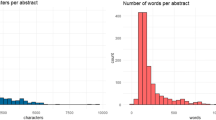Abstract
The ontological question of whether nature ‘naturally’ has rights is related to indigenous people’s interactions with nature. In the academic discussion of that relationship, roughly two movements can be discerned. Indigenous people in the first movement would reject the idea of personality as something granted by humans to non-humans. A second movement is the view that thinking about rights does not coincide at all with indigenous people’s interactions with whatsoever; indigenous people, instead of a Western, dialectical discourse of rights, would have a more semiotic conception of normativity. In this way, the question of the ontology of rights for nature masks an underlying colonialism. A third perspective would offer an outcome from this discussion. This is the view that a philosophical-ontological discussion about the granting or recognition of rights for nature is just unimportant. The legal fiction theory merely declares the anthropological concept of man to be a legal subject and sees in the concept of legal personality a legal, dialectical construct, which, through sovereignty legitimated by the state, holds natural persons and legal persons to be equal. This argumentation is pragmatic and does not yield many legal-philosophical consequences.
Similar content being viewed by others
Notes
References
Berger, Peter L. & Luckmann, Thomas. [1966] 1991. The Social Construction of Reality: A Treatise in the Sociology of Knowledge. London: Penguin Books.
Demos, T.J. 2016. Decolonizing Nature: Contemporary Art and the Politics of Ecology. Berlin: Sternberg Press.
Dewey, John. [1935] 1963. Liberalism and Social Action. New York: Capricorn.
Dewey, John. [1938] 1997. Experience and Education. New York: Touchstone.
Ferrando, Francesca. 2016. The Party of the Anthropocene: Post-humanism, Environmentalism and the Post-anthropocentric Paradigm Shift. Relations Beyond Anthropocentrism 4 (2): 159–173.
Foucault, Michel. 1966. Les mots et les choses. Une archéologie des sciences humaines. Paris: Gallimard.
Gray, John C. [1909] 1972. The Nature and Sources of the Law. Gloucester: Peter Smith.
Hegel, Georg W.F. [1821] 1970. Grundlinien der Philosophie des Rechts oder Naturrecht und Staatswissenschaft im Grundrisse. Suhrkamp.
Heidegger, Martin. [1947] 1949. Über den Humanismus. Frankfurt am Main: Vittorio Klostermann.
Heidegger, Martin. [1954] 1977. The Question Concerning Technology. In The Question Concerning Technology and Other Essays (pp. 3–35). New York: Garland.
Heidegger, Martin. [1957] 1983. Hebel–der Hausfreund. In Gesamtausgabe, Band 13: Aus der Erfahrung des Denkens (1910–1976) (pp. 133–150). Frankfurt am Main: Vittorio Klostermann.
Jansen, Bart, Faizal Kurniawan, Annida Putri, and Tineke E. Lambooy. 2021. A Post-Colonial Comparative Critical Legal Study of the Open Norm of Reasonableness and Fairness (or Good Faith) in Dutch and Indonesian Corporate Law. International and Comparative Corporate Law Journal 15 (1): 73–100.
Khan, Farzad R., and Peter Lund-Thomsen. 2011. CSR as Imperialism: Towards a Phenomenological Approach to CSR in the Developing World. Journal of Change Management 11 (1): 73–90.
Latour, Bruno. [2015] 2017. Facing Gaia: Eight Lectures on the New Climatic Regime. Cambridge, UK: Polity Press.
Levinas, Emmanuel. 1961. Totalité et infini. Essai sur l’extériorité. The Hague: Nijhoff.
Mihnea, T. 2020. Rights of Nature, Legal Personality, and Indigenous Philosophies. Transnational Environmental Law 9 (3): 429–453. https://doi.org/10.1017/S2047102520000217.
Nietzsche, Friedrich W. [1883] 1999. Also sprach Zarathustra. Ein Buch für Alle und Keinen. München: Deutscher Taschenbuch Verlag.
Nietzsche, Friedrich W. [1882] 1887. Die fröhliche Wissenschaft. Leipzig: E.W. Fritzsch.
Poesche, Jurgen. 2020. Coloniality of Corporate Social Responsibility. International Journal of Discrimination and the Law 20 (2–3): 115–136.
Rawson, Ariel J., and Becky Mansfield. 2018. Producing Juridical Knowledge: “Rights of Nature” or the Naturalization of Rights? Environment and Planning e: Nature and Space 1 (1–2): 106–116.
Savigny, Friedrich C. von. 1840. System des heutigen Römischen Rechts, vol. II. Berlin: Veit.
Schreiner, Agnes T.M. 2019. According to Aboriginal Law… Amsterdam: Duizend & Een.
Searle, John R. 1995. The Construction of Social Reality. New York: The Free Press.
Supiot, Alain [2006] 2017. Homo Juridicus: On the Anthropological Function of the Law. London: Verso.
Acknowledgement
The author would like to express gratitude for the valuable comments received on a previous draft of this paper, which was presented at the workshop Ontological and Normative Collisions: Struggles over Nature’s Rights at Hamburg Institute for Social Research in 2021.
Author information
Authors and Affiliations
Corresponding author
Ethics declarations
Competing interests
The authors declare that they have no competing interests.
Additional information
Publisher's Note
Springer Nature remains neutral with regard to jurisdictional claims in published maps and institutional affiliations.
Rights and permissions
Springer Nature or its licensor (e.g. a society or other partner) holds exclusive rights to this article under a publishing agreement with the author(s) or other rightsholder(s); author self-archiving of the accepted manuscript version of this article is solely governed by the terms of such publishing agreement and applicable law.
About this article
Cite this article
Jansen, B. The Ontological Indifference of Rights of Nature. Liverpool Law Rev 45, 171–178 (2024). https://doi.org/10.1007/s10991-023-09344-8
Accepted:
Published:
Issue Date:
DOI: https://doi.org/10.1007/s10991-023-09344-8




